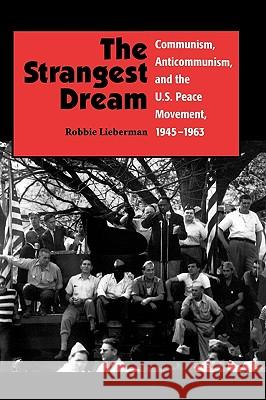The Strangest Dream Communism, Anticommunism, and the U.S. Peace Movement, 1945-1963 (PB) » książka
The Strangest Dream Communism, Anticommunism, and the U.S. Peace Movement, 1945-1963 (PB)
ISBN-13: 9781617350542 / Angielski / Miękka / 2010 / 266 str.
The Strangest Dream Drawing on extensive archival material and oral history, Robbie Lieberman illustrates how grassroots peace activism in the United States became associated with Communist subversion after World War II. This association gave proponents of the Cold War a powerful weapon with which to try to silence the opposition. This weapon-anticommunism--was extremely effective until the early 1960s and its effects linger even today. The persecution of peace activists as subversives dates back to the colonial era, but the specific link between communism and peace developed out of the unique conditions of the Cold War-Communist agitation for peace, American notions of national security and freedom that rested on containing communism at all costs. Not until peace organizations challenged external and internal anti-Communist attacks were they able to achieve a new level of respectability. The end of the Cold War enabled scholars to take a fresh look at the peace movement in the early part of that era and how it was affected by fears about communism, whether imagined or real. With this book, Lieberman seeks to clarify American attitudes about peace and the fate of the peace movement in ways that previous studies have overlooked or avoided.











